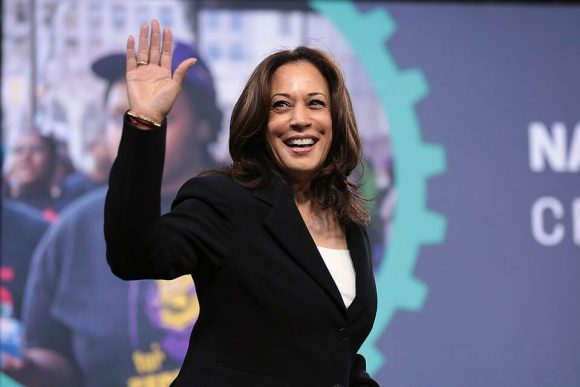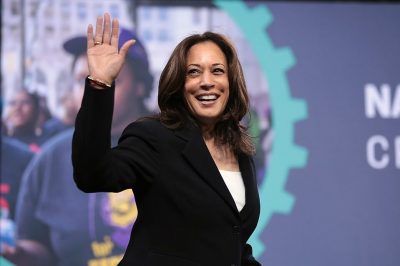As Vice President Kamala Harris emerges as a potential Democratic presidential nominee, her stance on artificial intelligence (AI) takes center stage.
Harris has a complex relationship with the tech industry, and her views on regulation and innovation could impact the future of technology and business in America.
Harris has long-standing connections to Silicon Valley, with early support from prominent venture capitalists.
As reported by The New York Times in 2021, she relied on Silicon Valley’s “tech elite” for donations, both for her election to be attorney-general, and later for her successful run for Senate.
Kamala Harris on AI
Harris has been vocal about the need for AI oversight. She rejected the idea that protecting the public from AI and advancing innovation are mutually exclusive, calling it a “false choice.”
She has also supported “voluntary commitments” from tech companies as a first step towards a “safer AI future,” but has indicated that more regulation is needed.
The positives of AI
In November, at the US Embassy in London, Harris said AI “has the potential to do profound good to develop powerful new medicines to treat and even cure the diseases that have for generations plagued humanity.”
She also discussed the benefits it poses for agricultural production “to help address global food insecurity, and to save countless lives in the fight against the climate crisis.”
RELATED: Could AI solve the climate skills gap?
She said the US government – along with civil society and the private sector – has a “moral, ethical, and societal duty to make sure that AI is adopted and advanced in a way that protects the public from potential harm and that ensures that everyone is able to enjoy its benefits.”
The negatives of AI
On the flipside, Harris warned that AI “also has the potential to cause profound harm.”
These threats, she said, could include AI-enabled cyberattacks at a massive scale, and AI-formulated bio-weapons.
Harris asked:
- “When a senior is kicked off his healthcare plan because of a faulty AI algorithm, is that not existential for him?”
- “When a woman is threatened by an abusive partner with explicit, deep-fake photographs, is that not existential for her?”
- “When a young father is wrongfully imprisoned because of biased AI facial recognition, is that not existential for his family?”
- “When people around the world cannot discern fact from fiction because of a flood of AI-enabled mis- and disinformation, is that not existential for democracy?”
Kamala Harris vs big tech
As reported by TechCrunch, Harris advocating for the regulation of big tech doesn’t mean she intends to “break them up.” With TikTok, for example, Harris said the US needed to “deal with the owner,” (ByteDance), instead of banning the app.
Now that Harris is in the presidential run, her AI policies could impact the tech industry. That said, with Harris at the helm, the industry could avoid the “overregulation” fears.
Her unique position – with roots in both politics and Silicon Valley – may offer a bridge between innovation and oversight, potentially defining a new era in AI governance.
AI safety and security in the US
In October, the Biden-Harris Administration issued an Executive Order “to ensure America leads the way in seizing the promise and managing the risks of AI.” The order included new standards for AI safety and security.
This order requires developers and AI systems to share safety test results with the government. It specifically applies to models which may pose risks to national security, public health, or the economy.
The department of homeland security was tasked with applying standards to critical infrastructure, while the department of commerce had to develop guidance for content watermarking.
The presidential administration also required the development of advanced programs to find software vulnerabilities, and a National Security Memorandum. This also placed the focus on the ethical use of AI in military and intelligence, and countering adversaries’ AI use.
NOW READ: Generative AI’s positive impact on supply chain
Image credit: Wikimedia Commons/Gage Skidmore
About the author
Cheryl has contributed to various international publications, with a fervor for data and technology. She explores the intersection of emerging tech trends with logistics, focusing on how digital innovations are reshaping industries on a global scale. When she's not dissecting the latest developments in AI-driven innovation and digital solutions, Cheryl can be found gaming, kickboxing, or navigating the novel niches of consumer gadgetry.











